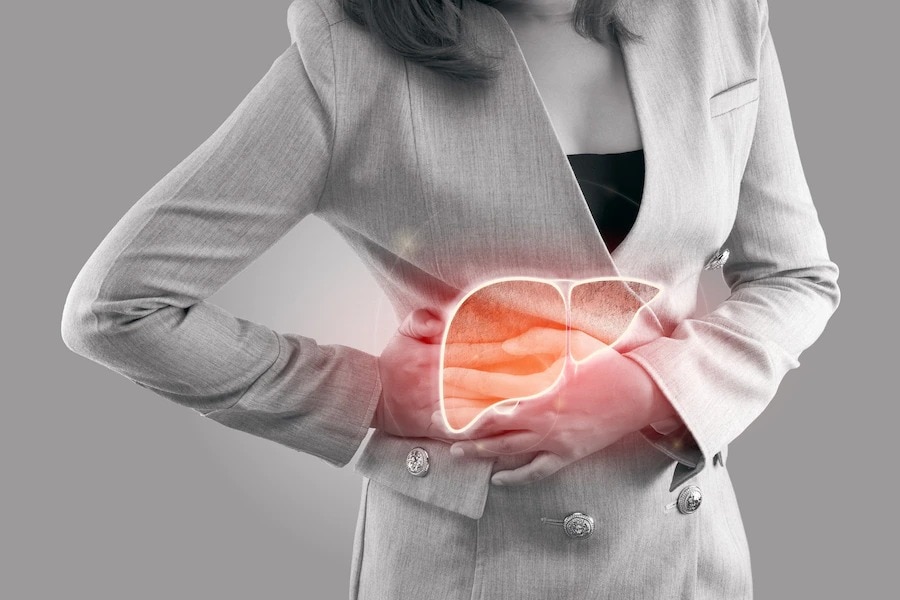According to experts, most people do not have signs or symptoms in the early stages of primary liver cancer.
One of the forms of cancer with the fastest growing rate is liver cancer, which can be fatal. Liver cancer is cancer that begins in the cells of the liver. Your liver is a football-sized organ located in the upper right part of your abdomen, below your diaphragm and above your stomach. The liver is prone to developing a number of cancers. Hepatocellular carcinoma, the most common form of liver cancer, develops in the primary cell type of the liver (hepatocytes). Hepatoblastoma and intrahepatic cholangiocarcinoma are two significantly less common types of liver cancer.
Signs and symptoms
Most people do not have signs or symptoms in the early stages of primary liver cancer. When signs and symptoms do appear, they may include:
- Weight loss (without trying)
- Appetite reduction
- After a modest dinner, feeling incredibly full
- nausea or diarrhea
- A fullness on the right side under the rib cage indicates an enlarged liver.
- A fullness below the ribs on the left side is the result of an enlarged spleen.
- Abdominal (belly) pain or discomfort near the right shoulder blade
- Abdominal bloating or fluid buildup (belly)
- itching
- Eyes and skin that have turned yellow (jaundice)
- Fever, swollen veins in the abdomen that are visible through the skin, and unusual bleeding or bruising are a few more symptoms that may appear.
Treatment
By adopting good lifestyle practices, such as regular exercise, maintaining a healthy weight, and eating a balanced diet with less alcohol, you can reduce your chance of getting liver cancer. Infection with hepatitis B and C viruses should also be avoided. Hepatitis B infection can lead to malignancy, liver failure, and cirrhosis if left untreated. Hepatitis B vaccines are offered for both adults and children. Consider getting tested for hepatitis B or C if you are at risk of getting them.
Antiviral drugs, which can slow the course of liver disease and reduce (but not completely eliminate) the risk of liver cancer, may be an option if you have chronic hepatitis B. Hepatitis C does not require vaccination, but most patients can be cured of the infection with the correct care. A If you have chronic hepatitis, you should see your doctor often for imaging tests such as an ultrasound, CT scan, or MRI.
(Contributions from Dr Suhas Aagre, Consultant Medical Oncologist and Hemato-Oncologist, Asian Cancer Institute and Cancer One Clinic, Chembur)
